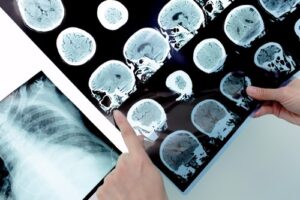Neuropsychological testing plays a crucial role in the assessment and diagnosis of brain injuries. In Kansas, where brain injuries are a significant concern, these tests are valuable tools for healthcare professionals in understanding the cognitive, emotional, and behavioral changes resulting from such injuries. This blog post aims to explore the role of neuropsychological testing in evaluating brain injuries in Kansas, highlighting its benefits, applications, and the importance of seeking appropriate assessments.
Understanding Brain Injuries:
- Definition and types of brain injuries
- Common Causes of brain injuries in Kansas
- Impact of brain injuries on Cognitive, emotional, and behavioral functioning
What is Neuropsychological Testing?
- Overview of neuropsychological testing
- Purpose and goals of the assessment
- How it differs from other types of assessments
Benefits of Neuropsychological Testing:
- A comprehensive evaluation of cognitive functioning
- Identifying cognitive strengths and weaknesses
- Objective measurement of brain injury severity
- Informing treatment planning and rehabilitation strategies
Applications of Neuropsychological Testing in Brain Injury Cases:
- Diagnosing traumatic brain injuries (TBI)
- Assessing the impact of brain injuries on daily functioning
- Evaluating cognitive changes in sports-related concussions
- Identifying cognitive impairments in military veterans with brain injuries
The Process of Neuropsychological Testing:
- Pre-assessment preparations and consultations
- Common Tests and measures used in brain injury evaluations
- Conducting the assessment and gathering data
- Interpretation of results and report generation
The Importance of Seeking Appropriate Assessments:
- Recognizing the signs and symptoms of brain injuries
- Consulting healthcare professionals experienced in neuropsychological testing
- The role of neuropsychologists and specialists in the evaluation process
- Ensuring accurate and timely assessments for effective treatment
Resources for Neuropsychological Testing in Kansas:
- Identifying reputable healthcare facilities and providers specializing in neuropsychological testing
- Contacting local hospitals, clinics, or rehabilitation centers with expertise in brain injury assessments
- Seeking recommendations from primary care physicians, neurologists, or other healthcare professionals
- Utilizing online directories or databases of healthcare providers in Kansas
The Role of Insurance Coverage:
- Understanding insurance coverage for neuropsychological testing and brain injury assessments
- Checking with insurance providers regarding coverage details, network providers, and pre-authorization requirements
- Advocating for appropriate coverage and reimbursement for necessary assessments
Ongoing Research and Advances in Neuropsychological Testing:
- Highlighting the evolving nature of neuropsychological testing techniques
- Exploring emerging technologies and innovations in brain injury assessments
- Discussing research studies and advancements in understanding the brain’s response to injuries
- Promoting awareness of ongoing research and its potential impact on improving diagnostic accuracy and treatment outcomes
Support and Rehabilitation for Individuals with Brain Injuries:
- Emphasizing the importance of multidisciplinary care teams in managing brain injuries
- Discussing rehabilitation programs tailored to address specific cognitive, emotional, and behavioral challenges
- Providing information on support groups, counseling services, and community resources available for individuals and their families
- Promoting a holistic approach to recovery and well-being post-brain injury
Neuropsychological testing plays a crucial role in assessing brain injuries in Kansas, aiding in the understanding and management of cognitive, emotional, and behavioral changes resulting from such injuries. By identifying the extent and impact of brain injuries, healthcare professionals can develop appropriate treatment plans and rehabilitation strategies. It is essential for individuals and their families to seek appropriate assessments from qualified professionals and access the available resources and support systems to optimize recovery and improve quality of life. As research continues to advance in the field of neuropsychological testing, we can anticipate further improvements in diagnostic accuracy and treatment outcomes for individuals with brain injuries in Kansas and beyond.
At Melinda Young and our team of qualified neuropsychologists and healthcare professionals specializing in brain injuries can play a significant role in assisting with the assessment and management of brain injury cases in Kansas. Here’s how we can help:
Conducting Neuropsychological Assessments: We administer comprehensive neuropsychological tests to evaluate the cognitive, emotional, and behavioral functioning of individuals with brain injuries. Through this assessment, we gather valuable data and insights that aid in diagnosing brain injuries, determining their severity, and understanding the specific cognitive impairments present.
Interpreting Assessment Results: With our expertise in neuropsychological testing, we interpret the results of the assessments. We provide a detailed analysis of the individual’s cognitive strengths and weaknesses, highlighting the specific areas affected by the brain injury. This information is crucial for developing targeted treatment plans and rehabilitation strategies.
Collaborating with Healthcare Professionals: We work collaboratively with other healthcare professionals involved in the management of brain injury cases. This may include neurologists, neurosurgeons, primary care physicians, therapists, and rehabilitation specialists. By sharing our assessment findings and expertise, we contribute to a comprehensive understanding of the individual’s condition and ensure a coordinated approach to treatment.
Guiding Treatment and Rehabilitation Efforts: Based on our assessment results, we provide recommendations for treatment and rehabilitation interventions tailored to address the specific cognitive impairments resulting from the brain injury. We assist in designing cognitive rehabilitation programs, providing strategies to improve cognitive functioning, and monitoring progress over time.
Educating Patients and Families: We offer education and support to individuals with brain injuries and their families. We explain the assessment process, clarify the implications of the results, and provide information on available resources and support systems. This helps empower individuals and their families to make informed decisions regarding treatment, rehabilitation, and ongoing care.
Staying Updated with Research and Best Practices: We stay abreast of the latest research and advancements in the field of neuropsychological testing and brain injury management. By continuously updating our knowledge and skills, we ensure that we are utilizing the most effective and evidence-based assessment tools and interventions to support individuals with brain injuries in Kansas.
Our team, led by Melinda Young, can provide valuable expertise in neuropsychological testing to assess brain injuries in Kansas cases. Our contributions in conducting assessments, interpreting results, guiding treatment, and providing support can significantly improve the outcomes and quality of life for individuals affected by brain injuries.
